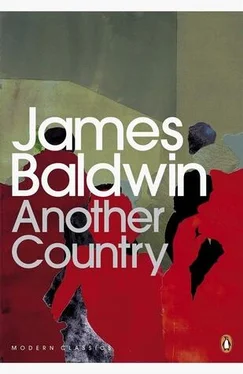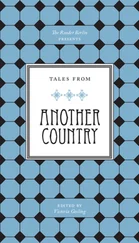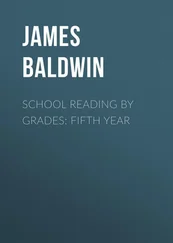James Baldwin - Another Country
Здесь есть возможность читать онлайн «James Baldwin - Another Country» весь текст электронной книги совершенно бесплатно (целиком полную версию без сокращений). В некоторых случаях можно слушать аудио, скачать через торрент в формате fb2 и присутствует краткое содержание. Год выпуска: 2001, Издательство: Penguin Books, Жанр: Современная проза, на английском языке. Описание произведения, (предисловие) а так же отзывы посетителей доступны на портале библиотеки ЛибКат.
- Название:Another Country
- Автор:
- Издательство:Penguin Books
- Жанр:
- Год:2001
- ISBN:нет данных
- Рейтинг книги:3 / 5. Голосов: 1
-
Избранное:Добавить в избранное
- Отзывы:
-
Ваша оценка:
- 60
- 1
- 2
- 3
- 4
- 5
Another Country: краткое содержание, описание и аннотация
Предлагаем к чтению аннотацию, описание, краткое содержание или предисловие (зависит от того, что написал сам автор книги «Another Country»). Если вы не нашли необходимую информацию о книге — напишите в комментариях, мы постараемся отыскать её.
is a novel of passions — sexual, racial, political, artistic — that is stunning for its emotional intensity and haunting sensuality, depicting men and women, blacks and whites, stripped of their masks of gender and race by love and hatred at the most elemental and sublime. In a small set of friends, Baldwin imbues the best and worst intentions of liberal America in the early 1970s.
Another Country — читать онлайн бесплатно полную книгу (весь текст) целиком
Ниже представлен текст книги, разбитый по страницам. Система сохранения места последней прочитанной страницы, позволяет с удобством читать онлайн бесплатно книгу «Another Country», без необходимости каждый раз заново искать на чём Вы остановились. Поставьте закладку, и сможете в любой момент перейти на страницу, на которой закончили чтение.
Интервал:
Закладка:
The taxi stopped beside them. He gave her his keys.
She opened the door, keeping her face away from the driver.
“Rufus ain’t going to kill nobody but himself,” she said, “if he don’t find a friend to help him.” She paused, half-in, half-out of the cab. “You the only friend he’s got in the world, Vivaldo.”
He gave her some money for the fare, looking at her with something, after all these months, explicit at last between them. They both loved Rufus. And they were both white. Now that it stared them so hideously in the face, each could see how desperately the other had been trying to avoid this confrontation.
“You’ll go there now?” he asked. “You’ll go to my place?”
“Yes. I’ll go. You go on back to Rufus. Maybe you can help him. He needs somebody to help him.”
Vivaldo gave the driver his address and watched the taxi roll away. He turned and started back the way they had come.
The way seemed longer, now that he was alone, and darker. His awareness of the policeman, prowling somewhere in the darkness near him, made the silence ominous. He felt threatened. He felt totally estranged from the city in which he had been born; this city for which he sometimes felt a kind of stony affection because it was all he knew of home. Yet he had no home here — the hovel on Bank Street was not a home. He had always supposed that he would, one day, make a home here for himself. Now he began to wonder if anyone could ever put down roots in this rock; or, rather, he began to be aware of the shapes acquired by those who had. He began to wonder about his own shape.
He had often thought of his loneliness, for example, as a condition which testified to his superiority. But people who were not superior were, nevertheless, extremely lonely — and unable to break out of their solitude precisely because they had no equipment with which to enter it. His own loneliness, magnified so many million times, made the night air colder. He remembered to what excesses, into what traps and nightmares, his loneliness had driven him; and he wondered where such a violent emptiness might drive an entire city.
At the same time, as he came closer to Rufus’ building, he was trying very hard not to think about Rufus.
He was in a section of warehouses. Very few people lived down here. By day, trucks choked the streets, laborers stood on these ghostly platforms, moving great weights, and cursing. As he had once; for a long time, he had been one of them. He had been proud of his skill and his muscles and happy to be accepted as a man among men. Only — it was they who saw something in him which they could not accept, which made them uneasy. Every once in a while, a man, lighting his cigarette, would look at him quizzically, with a little smile. The smile masked an unwilling, defensive hostility. They said he was a “bright kid,” that he would “go places”; and they made it clear that they expected him to go, to which places did not matter — he did not belong to them.
But at the bottom of his mind the question of Rufus nagged and stung. There had been a few colored boys in his high school but they had mainly stayed together, as far as he remembered. He had known boys who got a bang out of going out and beating up niggers. It scarcely seemed possible — it scarcely, even, seemed fair — that colored boys who were beaten up in high school could grow up into colored men who wanted to beat up everyone in sight, including, or perhaps especially, people who had never, one way or another, given them a thought.
He watched the light in Rufus’ window, the only light on down here.
Then he remembered something that had happened to him a long time ago, two years or three. It was when he had been spending a lot of time in Harlem, running after the whores up there. One night, as a light rain fell, he was walking uptown on Seventh Avenue. He walked very briskly, for it was very late and this section of the Avenue was almost entirely deserted and he was afraid of being stopped by a prowl car. At 116th Street he stopped in a bar, deliberately choosing a bar he did not know. Since he did not know the bar he felt an unaccustomed uneasiness and wondered what the faces around him hid. Whatever it was, they hid it very well. They went on drinking and talking to each other and putting coins in the juke box. It certainly didn’t seem that his presence caused anyone to become wary, or to curb their tongues. Nevertheless, no one made any effort to talk to him and an almost imperceptible glaze came over their eyes whenever they looked in his direction. This glaze remained, even when they smiled. The barman, for example, smiled at something Vivaldo said and yet made it clear, as he pushed his drink across the bar, that the width of the bar was but a weak representation of the great gulf fixed between them.
This was the night that he saw the eyes unglaze. Later, a girl came over to him. They went around the corner to her room. There they were; he had his tie loosened and his trousers off and they had been just about to begin when the door opened and in walked her “husband.” He was one of the smooth-faced, laughing men who had been in the bar. The girl squealed, rather prettily, and then calmly began to get dressed again. Vivaldo had first been so disappointed that he wanted to cry, then so angry that he wanted to kill. Not until he looked into the man’s eyes did he begin to be afraid.
The man looked down at him and smiled.
“Where was you thinking of putting that, white boy?”
Vivaldo said nothing. He slowly began pulling on his trousers. The man was very dark and very big, nearly as big as Vivaldo, and, of course, at that moment, in much better fighting condition.
The girl sat on the edge of the bed, putting on her shoes. There was silence in the room except for her low, disjointed, intermittent humming. He couldn’t quite make out the tune she was humming and this, for some insane reason, drove him wild.
“You might at least have waited a couple of minutes,” Vivaldo said. “I never even got it in.”
He said this as he was buckling his belt, idly, out of some dim notion that he might thus, in effect, reduce the fine. The words were hardly out of his mouth before the man had struck him, twice, palm open, across the face. Vivaldo staggered backward from the bed into the corner which held the sink and a water glass went crashing to the floor.
“Goddamnit,” said the girl, sharply, “ain’t no need to wreck the joint.” And she bent down to pick up the bits of glass. But it also seemed to Vivaldo that she was a little frightened and a little ashamed. “Do what you going to do,” she said, from her knees, “and get him out of here.”
Vivaldo and the man stared at each other and terror began draining Vivaldo’s rage out of him. It was not merely the situation which frightened him: it was the man’s eyes. They stared at Vivaldo with a calm, steady hatred, as remote and unanswerable as madness.
“You goddamn lucky you didn’t get it in,” he said. “You’d be a mighty sorry white boy if you had. You wouldn’t be putting that white prick in no more black pussy, I can guarantee you that.”
Well, if that’s the way you feel, Vivaldo wanted to say, why the hell don’t you keep her off the streets? But it really seemed better — and it seemed, weirdly enough, that the girl was silently trying to convey this to him — to say as little as possible.
So he only said, after a moment, as mildly as he could. “Look. I fell for the oldest gag in the business. Here I am. Okay. What do you want?”
And what the man wanted was more than he knew how to say. He watched Vivaldo, waiting for Vivaldo to speak again. Vivaldo’s mind was filled suddenly with the image of a movie he had seen long ago. He saw a bird dog, tense, pointing, absolutely silent, waiting for a covey of quail to surrender to panic and fly upward, where they could be picked off by the guns of the hunters. So it was in the room while the man waited for Vivaldo to speak. Whatever Vivaldo might say would be turned into an opportunity for slaughter. Vivaldo held his breath, hoping that his panic did not show in his eyes, and felt his flesh begin to crawl. Then the man looked over at the girl, who stood near the bed, watching him, and then he slowly moved closer to Vivaldo. When he stood directly before Vivaldo, his eyes still driving, it seemed, into Vivaldo’s as though he would pierce the skull and the brain and possess it all, he abruptly held out his hand.
Читать дальшеИнтервал:
Закладка:
Похожие книги на «Another Country»
Представляем Вашему вниманию похожие книги на «Another Country» списком для выбора. Мы отобрали схожую по названию и смыслу литературу в надежде предоставить читателям больше вариантов отыскать новые, интересные, ещё непрочитанные произведения.
Обсуждение, отзывы о книге «Another Country» и просто собственные мнения читателей. Оставьте ваши комментарии, напишите, что Вы думаете о произведении, его смысле или главных героях. Укажите что конкретно понравилось, а что нет, и почему Вы так считаете.












